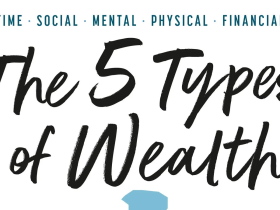In the depths of self-discovery lies a paradox: to truly know ourselves, we must first learn to forget ourselves. This wisdom, echoed through centuries by enlightened minds, suggests that our greatest understanding comes not through rigid self-focus, but through the gentle art of letting go.
When we speak of forgetting ourselves, we’re not discussing mere absent-mindedness or self-neglect. Rather, we’re exploring the conscious release of our attachments to ego – those carefully constructed walls of identity that often limit our vision of reality. As consciousness expands beyond the confines of self-importance, we begin to touch something far more profound: the interconnected fabric of existence itself.
“The quieter you become, the more you can hear,” goes an ancient wisdom teaching. This quieting of the self creates space for deeper understanding. When we release our grip on who we think we should be, we create room for who we truly are. The ego, that persistent architect of future worries and past regrets, gradually loosens its hold, allowing present moment awareness to flourish.
Consider the metaphor of a cup: only when it is empty can it be filled with something new. Similarly, our minds must sometimes empty themselves of preconceptions to receive fresh insights. This emptying is not a loss but a transformation – a shifting from the narrow confines of self-importance to the vast expanse of universal understanding.
The path to wisdom through self-forgetting manifests in numerous ways. In nature, we might find ourselves absorbed in the dance of leaves on the wind, momentarily freed from self-referential thoughts. In learning, we embrace the beginner’s mind, setting aside our need to be the expert. In conversation, we learn to truly listen, releasing our urgent need to assert our own perspective.

This journey requires courage. It asks us to question our most cherished beliefs about who we are. Yet in this questioning lies liberation. As we release our attachment to fixed identity, we discover something remarkable: the less we grasp at defining ourselves, the more deeply we understand our true nature.
The practice of self-forgetting doesn’t diminish our individuality; rather, it reveals our authentic essence. Like a cloud dissolving into the vast sky, we don’t cease to exist – we expand into something greater. This expansion brings with it a natural wisdom, one that flows not from accumulation of knowledge but from direct experience of our fundamental interconnectedness.
Wisdom emerges not from building ourselves up, but from letting ourselves go. It comes not from adding more layers of knowledge, but from peeling away the barriers that separate us from direct experience. In this space of openness, we find what spiritual teachers have long proclaimed: that our truest self emerges precisely when we stop trying so hard to be somebody.
Wrapping Up with Key Insights
The journey toward wisdom through self-forgetting is not a destination but a continuous unfolding. Each moment offers an opportunity to release our grip on ego-driven concerns and open ourselves to the vastness of experience. In this opening, we discover that true wisdom doesn’t come from strengthening our sense of self, but from gently allowing it to dissolve into the greater mystery of existence.
As we learn to forget ourselves, we paradoxically become more fully who we are. In releasing our attachment to the small self, we connect with something far more vast and meaningful. This is the heart of wisdom: not the accumulation of knowledge, but the expansion of consciousness beyond the boundaries of individual identity into the unlimited potential of being itself.





